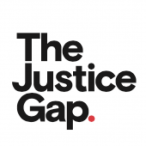Migrant Rights Network has published the Government’s response to their joint letter in relation to the extent to which modern slavery victims can challenge deportations.
Migrants at Work, BID, FLEX, and BASNET wrote a joint letter to the Home Secretary on the 10th of October. This was in response to concerns about her plans to restrict migrants from being able to challenge deportations on the basis that they had been subject to forced labour or human trafficking. The Home Secretary contends that the system has been subject to abuse as the number of those claiming to suffer from modern slavery doubled between 2017 and 2020 from 5,141 to 10,613.
The joint letter highlights the importance of the courts and access to judicial scrutiny in ensuring justice, especially for those most vulnerable in society that may be subject to deportation. The Home Office has a preference to remove victims, which critics argue neglects their duty to protect people from trafficking. To support this statement, they cite a case where the Home Office was forced to pay £25,000 in damages after unlawfully trying to deport a trafficking victim and claims made in interviews that Albanians are misusing the National Referral Mechanism (NRM). Civil society organisations refute this claim using the Government’s statistics that Albanians are the 2nd highest nationality under the Duty to Notify (an increase of 47% since 2021), suggesting that many Albanians are not entering the NRM, despite the likelihood that they are victims of trafficking.
The joint letter makes clear that any attempts to crack down on modern slavery are undermined if deportations cannot be challenged by those at risk of trafficking and labour abuse as victims will be reluctant to come forward and report abuses.
In response, the Minister for Safeguarding reassures Migrants at Work and others that tackling human trafficking and modern slavery is a top priority for the Government and that referrals to the NRM have increased significantly in recent years – 12,272 in 2021 – an increase of 20% from the previous year. The Home Office is said to be improving training for First Responder Organisations and increasing awareness of modern slavery indicators in order to drive up the quality of referrals into the system.
However, Emily Kenway, former advisor to the first UK Independent Anti-Slavery Commissioner says, “modern slavery is a real experience…but it is also a political tool used by politicians to cast some people as victims and others are considered unacceptable victims.” Joe Calouri notes that after a child leaves the NRM there is ‘no guaranteed level of support for victims after a positive conclusive grounds decision.’ The Home Office must ensure that training covers implicit and explicit biases and that there is appropriate support to ensure protection of rights for victims of modern slavery.







